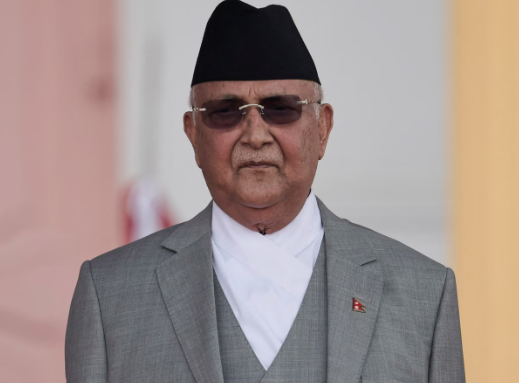
Nepal is reeling from political upheaval as Prime Minister KP Sharma Oli resigned in the wake of widespread anti-government protests that have turned deadly. Reports indicate that Oli may leave the country, raising the stakes in one of the nation’s most volatile political moments in recent years.
Background of the Crisis
The protests began as grassroots movements against corruption, mismanagement, and rising economic hardship. Over time, they gathered momentum, drawing tens of thousands of citizens to the streets. Anger boiled over as unemployment surged, inflation climbed, and government institutions appeared increasingly ineffective.
Demonstrations intensified after allegations of corruption in government contracts surfaced, sparking outrage against the political elite. Protests spread beyond Kathmandu to other major cities, overwhelming police forces.
Violence on the Streets
The situation escalated dramatically when protesters clashed with police. Stones were hurled, vehicles torched, and government offices attacked in some areas. Security forces responded with force, leading to dozens of injuries and 16 confirmed deaths.
Images of citizens carrying injured demonstrators and security forces storming crowds shocked the nation and galvanized international attention. Human rights groups criticized the government’s heavy-handed response, calling for restraint and dialogue.
Oli’s Fall from Power
Oli, once hailed as a strong leader who guided Nepal through constitutional reforms, gradually lost credibility due to his perceived authoritarian style and inability to address corruption. His resignation marks the end of yet another turbulent tenure.
The resignation was not entirely unexpected. Political analysts had predicted Oli’s downfall given the scale of public anger. However, the speed with which events unfolded caught many by surprise.
Talk of Exile
Adding intrigue to the unfolding drama are reports that Oli is preparing to leave Nepal. Sources suggest he fears both legal repercussions and personal threats following his resignation. The possibility of his departure raises questions about political accountability and could deepen divisions within the country.
Some argue that seeking asylum abroad would allow Oli to regroup politically, while others view it as abandonment at a time when the country most needs leadership.
Domestic Political Fallout
The resignation has set off a scramble among political parties. The opposition, led by the Nepali Congress and supported by smaller parties, is demanding a caretaker government followed by elections. Meanwhile, Oli’s own party faces internal fractures as leaders debate whether to defend or distance themselves from him.
The situation highlights Nepal’s enduring struggle with political instability. Governments rarely complete their terms, and coalition collapses are frequent, leaving citizens weary of constant turmoil.
Regional and International Implications
Both India and China are closely monitoring the situation. India has urged calm and emphasized the importance of democratic stability, while China has remained cautious, likely weighing its investments and strategic ties. Western nations have called for peaceful dialogue and respect for democratic principles.
Nepal’s location between two Asian giants makes its political developments a matter of regional concern. A power vacuum or prolonged instability could shift the delicate balance of influence in the Himalayan region.
The Road Ahead
While Oli’s resignation addresses immediate public demands, it leaves unanswered questions about the path forward. Protesters continue to call for constitutional reforms, tougher anti-corruption laws, and accountability for the deaths during the demonstrations.
Nepal’s young population, disillusioned with repeated political failures, is demanding long-term change. How political leaders respond will determine whether the country stabilizes or falls into deeper crisis.
